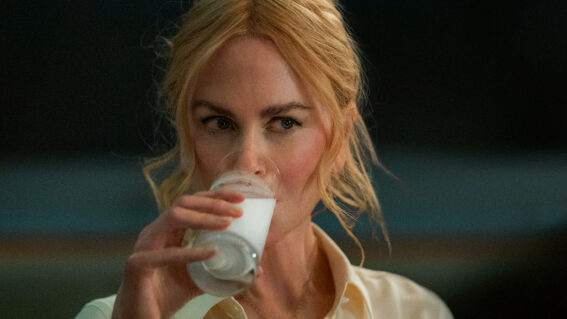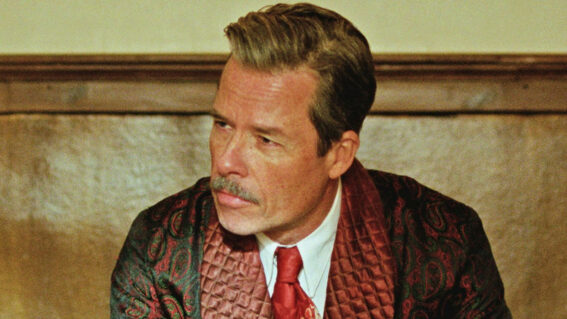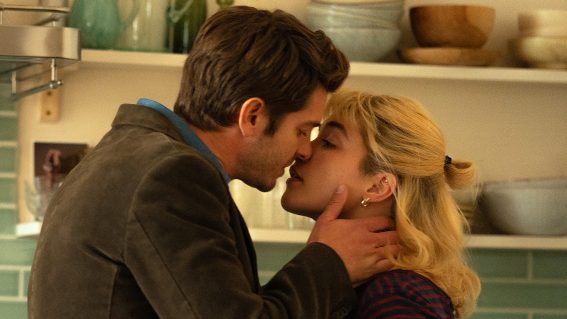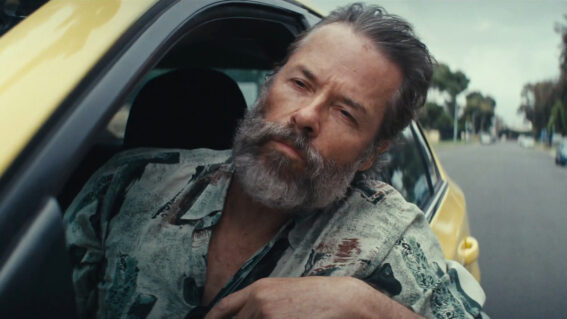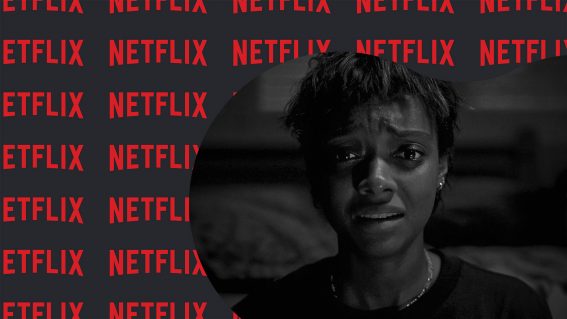I Kid You Not: Chicken Run has one of cinema’s greatest villains
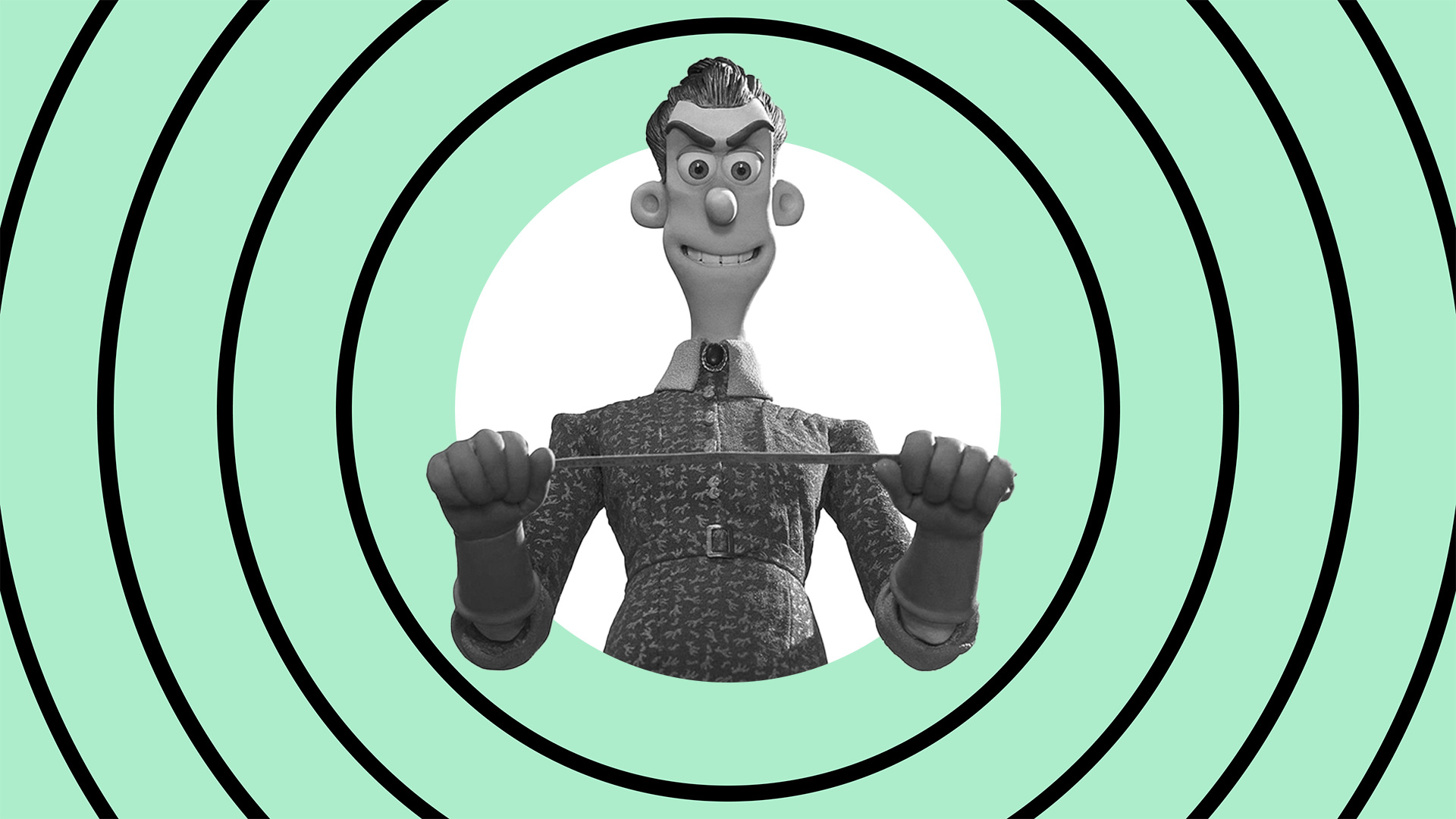
Who said family films aren’t cinema? In his column I Kid You Not, Liam Maguren critically evaluates the excellence in kids flicks and writes them into the history books. Here, he trembles at the boots of Chicken Run villain Mrs. Tweedy.
Chicken Run
Aardman’s Chicken Run is many things. An homage to The Great Escape? Yes. A masterclass in succinct storytelling? Certainly. A stop-motion family film so good, that it forced The Academy to add Best Animated Feature to the Oscars categories? Apparently so.
Holding up better than almost any other animated feature from the early 2000s, Chicken Run‘s merits are too numerous to count. Which is probably why we haven’t given the film’s villain, Mrs. Tweedy, her time on the throne.
Her introduction couldn’t be better. Running the coop (before the coup) like a hardass prison warden, Mrs. Tweedy slowly marches in front of three lines of obedient (and terrified) chickens. The close-ups of her gumboots pair with the sounds of heavy swings and crunchy stomps to emphasise her status as a juggernaut amongst these flightless birds.
She only stops twice: to intimidatingly stretch a rubber glove, and then to evilly grin at the one chook who didn’t lay an egg that week. Taking the poor hen to the chopping block, Mrs. Tweedy dons the pre-stretched glove and—without a hint of remorse—axes the bird’s head off.
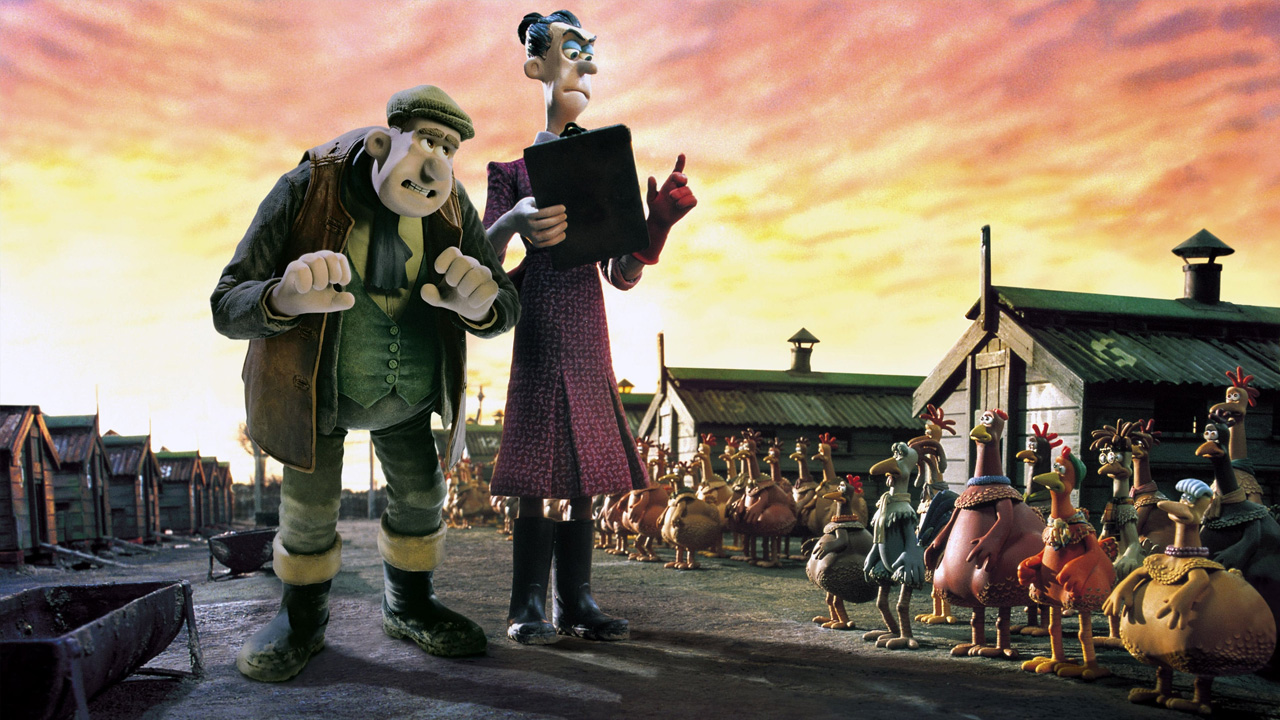
That’s textbook ‘establishing the stakes’ right there, Mrs. Tweedy smoothly pronouncing herself as a massive threat without saying a word. Not to discredit the voice work of two-time Oscar nominee Miranda Richardson (Tom & Viv and Damage), whose pitch-perfect performance provided the character’s steely spine for the animators to flesh out.
“The performances that we do with these puppets… that’s entirely based on these voices,” co-director Peter Lord explained in one of the film’s behind-the-scenes interviews “All the inspiration for what they do and every nuance—when they raise an eyebrow, how long they take to blink, the little gestures they make between words—all this is derived from the recordings.”
There’s something beautifully British about Miranda’s approach. The English accent has often been used to emphasise a certain type of upper-class authority, but Mrs. Tweedy lies closer to the working class—and she wants to move. Clearly dissatisfied with her humble farm life, she longs to achieve capital dominance in the livestock food industry (to her credit, her terrible animal welfare standards are still much better than other industrialised chicken farms). Miranda’s nasally, cold, controlling voice doesn’t just register as an authority figure—it’s the voice of a woman determined to get what she thinks she’s owed from society.
In traditional 2D/3D animation, the animators tend to energise their villains by magnifying movements and emotions. (Who would Cruella De Vil be without her wild arm gestures and exploding pinecone facial expressions?) But with Mrs. Tweedy, less is more. Her simple stride and frosty face stay true to the character’s cold and calculating ways while practically benefitting the painstaking process of stop-motion animation. As Lord said, they’re working with nuance, an often underappreciated skill in animation. This restraint also allows Mrs. Tweedy’s more aggressive moments—like a fist slamming the desk, or her psychotic turn near the end—to hit with greater contrast.
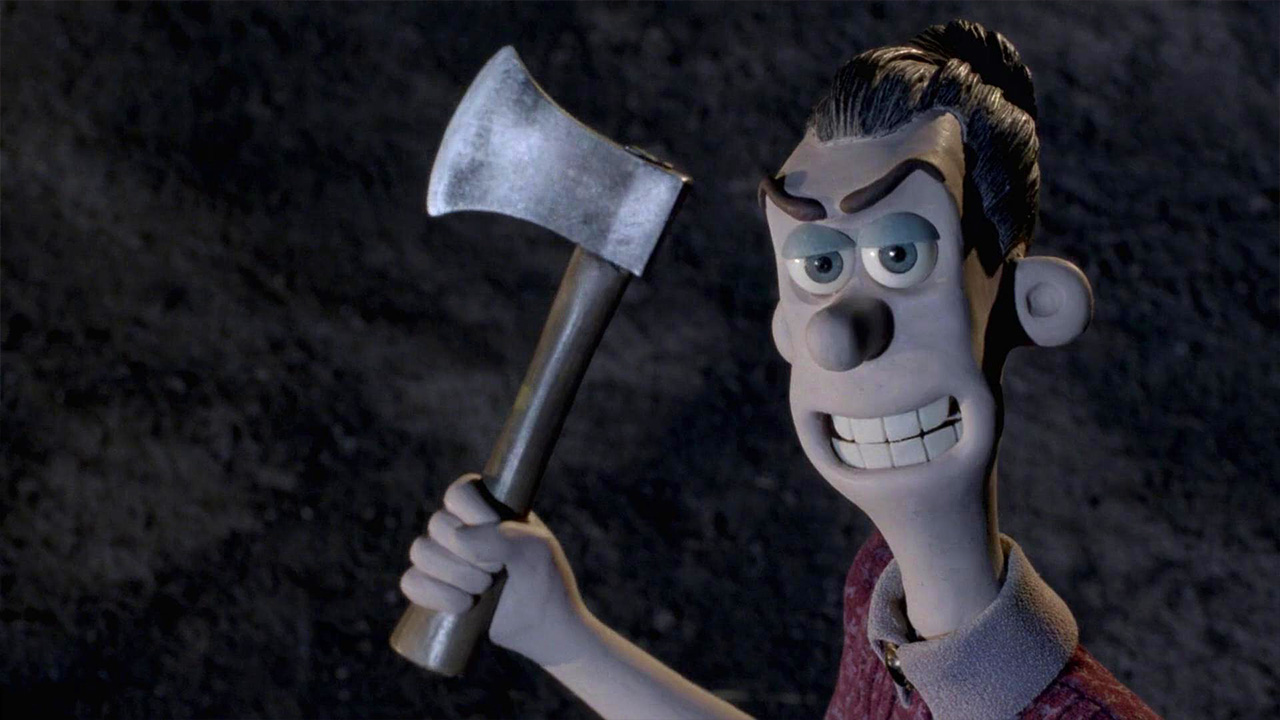
So much of Mrs. Tweedy’s memorable menace can be traced back to the script, especially the hilariously loveless way she treats her husband. It’s funny enough seeing her blatantly gaslight him, perhaps justifiably, about his suspicions of the chickens being organised. But I’m particularly obsessed with the subtle fact that she only calls him Mr. Tweedy. Not “my love.” Not even “husband.” Just “Mr. Tweedy.” They’re not even on a first-name basis in their marriage and that always tickles me.
And then there’s Aardman’s dialogue, which delightfully swings between pin-sharp and brutally blunt. “No more eggs?” Mr. Tweedy cries during one of my favourite exchanges. “But we’ve always been egg farmers… me father, and his father, and all their fathers, they were always–” Mrs. Tweedy savagely finishes his sentence: “Poor. Worthless. Nothings.”
Disgusted by this farm she married into—one that has sustained the Tweedys for generations—Mrs. Tweedy makes the move towards a seemingly more profitable but far less sustainable chicken pie-making business. It’s this classic greed-over-sense motive that leads to her hijacking the Tweedy name for her own gain, calling the new enterprise: “Mrs. Tweedy’s pies.”
Why just her, Mr. Tweedy rightfully asks. “Woman’s touch. Makes the public feel more comfortable.” Two simple sentences that say so much about the villain’s intentions, narcissism, and manipulative mind. The first line also makes its way onto a billboard, which is full of delicious visual irony.
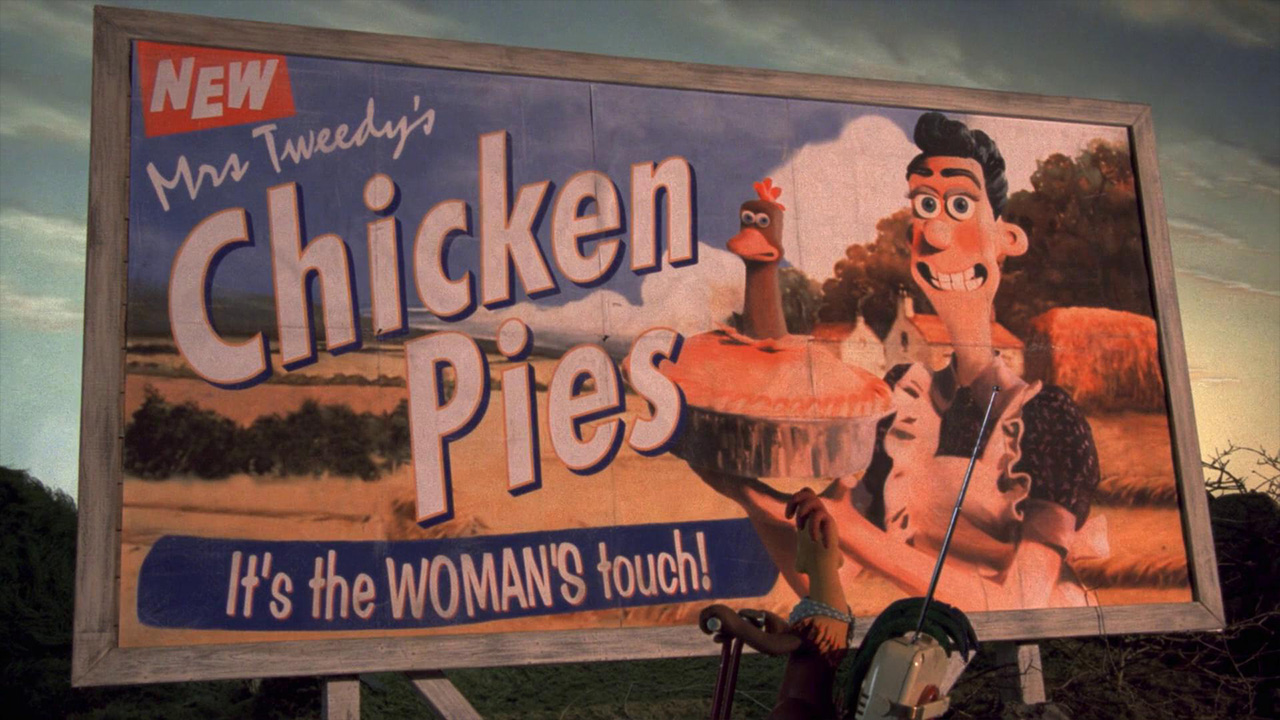
No great villain would be complete without a great send-off, and seeing Mrs. Tweedy’s poise melt in the climax feels perfectly cathartic. Any regular person would be so stunned at the sight of chickens piloting a self-built flying contraption, that they’d let them go and call it a day. But not Mrs. Tweedy. She latches onto the poultry plane with reckless abandon, armed with an axe and a misplaced sense of vengeance.
It’s a great action set-piece in its own right, but there’s one particular callback that feels particularly ingenious, and it has to do with that billboard. In a moment of visual poetry, Mrs. Tweedy smacks into her own face, with that part of the billboard sticking onto her mug. We then see her rip the fake smile off her face to unveil the real Mrs. Tweedy—an unhinged lunatic with an axe gritted between her teeth. Perfection.
The chooks manage to shake her off, firing Mrs. Tweedy into the barn and plugging the machine of her own creation—the chicken pie-maker. Moments from exploding, Mr. Tweedy opens the barn door, hears Mrs. Tweedy yelling at him, has a quiet epiphany, then shuts the door again. A minor victory for Mr. Tweedy. A massive loss for Mrs. Tweedy.
A great villain deserves a great defeat and Chicken Run delivers that tremendously satisfying blow, leaving the lasting impression that Mrs. Tweedy has caused herself financially ruined beyond repair. I cannot help but feel that its sequel, Dawn of the Nugget, sullies that impression somewhat by bringing her back.
Whether or not the sequel ends up being memorable, we’re unlikely to ever forget the wonderful meanness of Mrs. Tweedy in the original Chicken Run.





